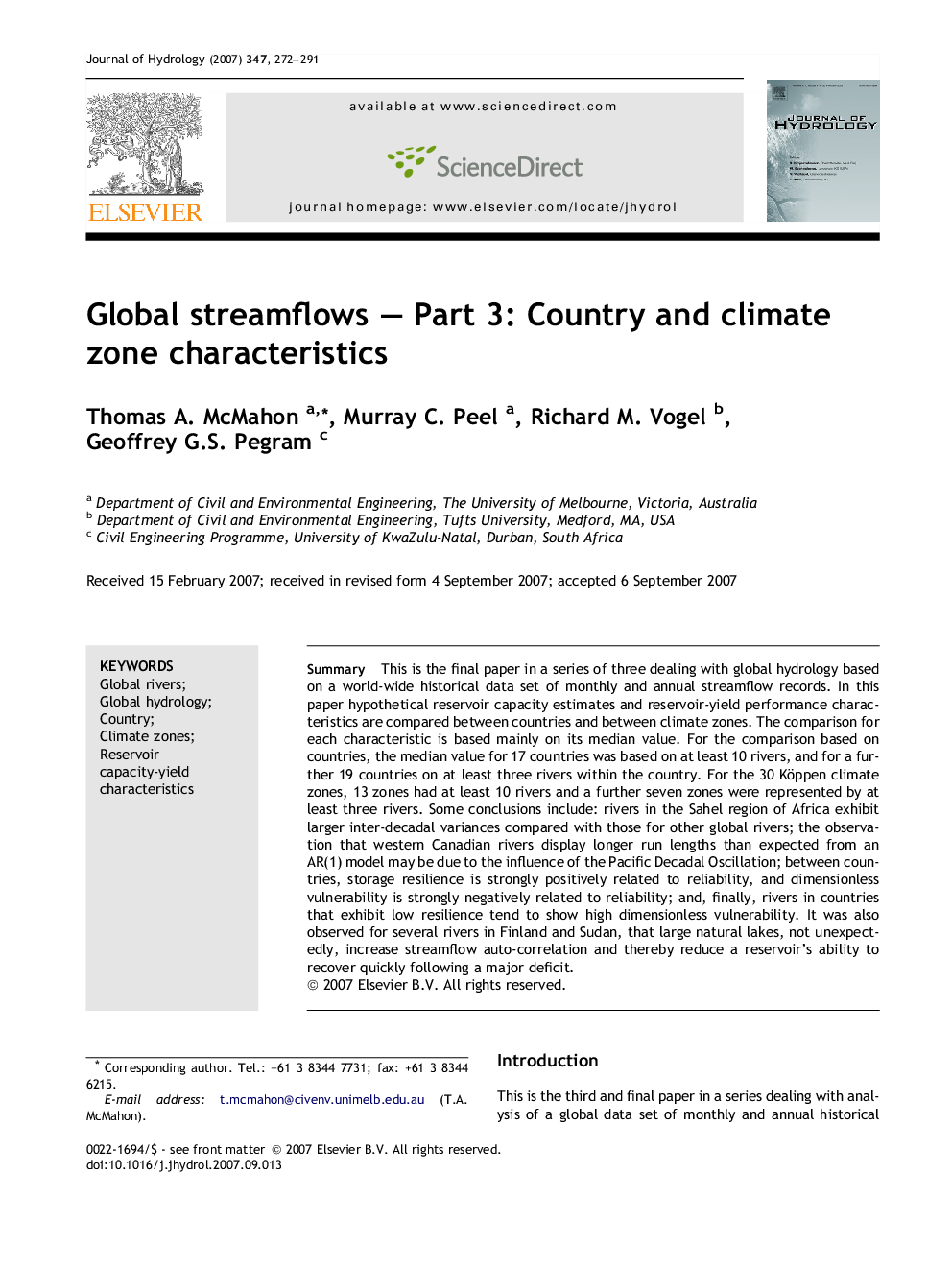| کد مقاله | کد نشریه | سال انتشار | مقاله انگلیسی | نسخه تمام متن |
|---|---|---|---|---|
| 4579568 | 1630121 | 2007 | 20 صفحه PDF | دانلود رایگان |

SummaryThis is the final paper in a series of three dealing with global hydrology based on a world-wide historical data set of monthly and annual streamflow records. In this paper hypothetical reservoir capacity estimates and reservoir-yield performance characteristics are compared between countries and between climate zones. The comparison for each characteristic is based mainly on its median value. For the comparison based on countries, the median value for 17 countries was based on at least 10 rivers, and for a further 19 countries on at least three rivers within the country. For the 30 Köppen climate zones, 13 zones had at least 10 rivers and a further seven zones were represented by at least three rivers. Some conclusions include: rivers in the Sahel region of Africa exhibit larger inter-decadal variances compared with those for other global rivers; the observation that western Canadian rivers display longer run lengths than expected from an AR(1) model may be due to the influence of the Pacific Decadal Oscillation; between countries, storage resilience is strongly positively related to reliability, and dimensionless vulnerability is strongly negatively related to reliability; and, finally, rivers in countries that exhibit low resilience tend to show high dimensionless vulnerability. It was also observed for several rivers in Finland and Sudan, that large natural lakes, not unexpectedly, increase streamflow auto-correlation and thereby reduce a reservoir’s ability to recover quickly following a major deficit.
Journal: Journal of Hydrology - Volume 347, Issues 3–4, 30 December 2007, Pages 272–291